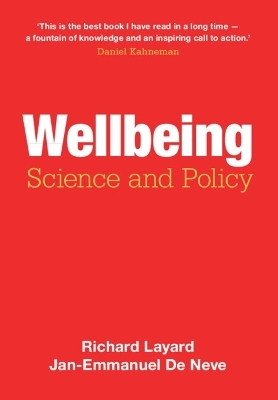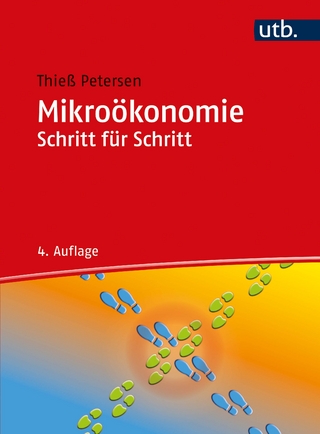
Wellbeing
Cambridge University Press (Verlag)
978-1-009-29894-0 (ISBN)
What produces a happy society and a happy life? Thanks to the new science of wellbeing, we can now answer this question using state-of-the-art empirical evidence. This transforms our ability to base our decisions on the outcomes that matter most, namely the wellbeing of us all including future generations. Written by two of the world's leading experts on the economics of wellbeing, this book shows how wellbeing can be measured, what causes it and how it can be improved. Its findings are profoundly relevant to all social sciences, including psychology, economics, politics, behavioural science and sociology. A field-defining text on a new science that aims to span the whole of human life, this will be an invaluable resource for undergraduate and graduate students, policy-makers and employers, who can apply its insights in their professional and private lives. This title is also available as Open Access on Cambridge Core.
Richard Layard is a leading British Economist, who thinks society's goal should be the wellbeing of the people. His landmark book Happiness: Lessons from a New Science has influenced policy-makers worldwide. He is co-founder of Action for Happiness, of the World Happiness Report and of the World Wellbeing Movement. In 2020 was awarded the Lifetime Achievement Award by Britain's ESRC. Jan-Emmanuel De Neve is a Belgian Economist and professor at the University of Oxford where he directs the Wellbeing Research Centre. He is best known for his research on the economics of wellbeing which was selected among "The Management Ideas that Mattered Most" by Harvard Business Review and he was awarded the Veenhoven Award for his contributions to the scientific study of happiness. He is an editor of the World Happiness Report and co-founder of the World Wellbeing Movement.
Part I. The Case for Wellbeing: 1. What subjective wellbeing is and why it matters; 2. Wellbeing as the goal for society; Part II. Human Nature and Wellbeing: 3. How our behaviour affects our wellbeing; 4. How our thoughts affect our wellbeing; 5. Our bodies, our genes and our wellbeing; Part III. How Our Experience Affects Our Wellbeing: 6. The inequality of wellbeing: some basic facts; 7. Tools to explain wellbeing; 8. Explaining wellbeing: a first exploration; 9. Family, schooling and social media; 10. Health and healthcare; 11. Unemployment; 12. The quality of work; 13. Income; 14. Community; 15. The physical environment and the planet; Part IV. Government and Wellbeing: 16. How government affects wellbeing; 17. How wellbeing affects voting; 18. Cost effectiveness and policy choice.
| Erscheinungsdatum | 20.02.2023 |
|---|---|
| Zusatzinfo | Worked examples or Exercises |
| Verlagsort | Cambridge |
| Sprache | englisch |
| Maße | 168 x 242 mm |
| Gewicht | 610 g |
| Themenwelt | Geisteswissenschaften ► Psychologie |
| Wirtschaft ► Volkswirtschaftslehre ► Mikroökonomie | |
| ISBN-10 | 1-009-29894-1 / 1009298941 |
| ISBN-13 | 978-1-009-29894-0 / 9781009298940 |
| Zustand | Neuware |
| Haben Sie eine Frage zum Produkt? |
aus dem Bereich


